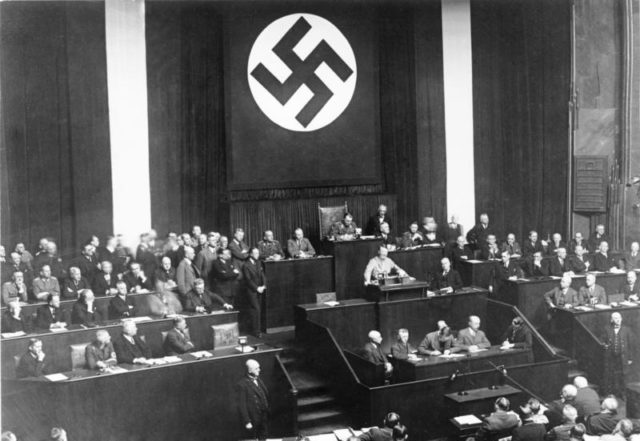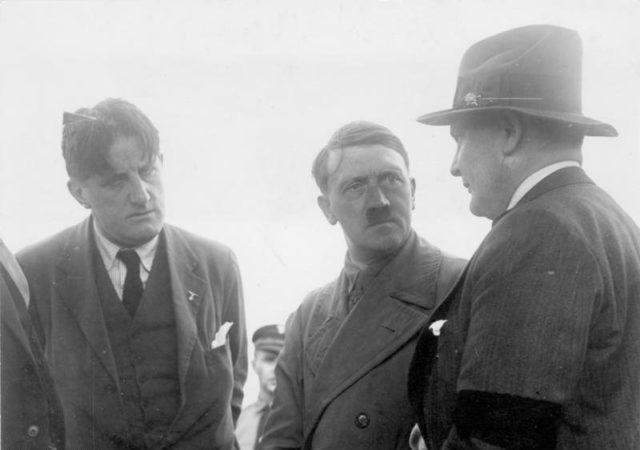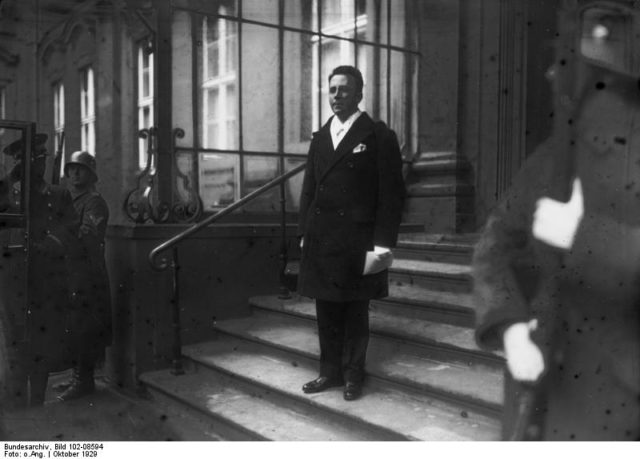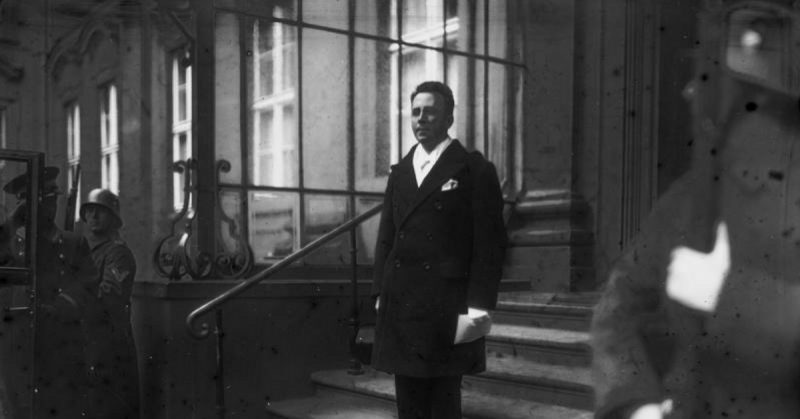One of the first people outside of Germany to recognize the danger in Adolf Hitler’s speeches was a young Irish student, according to a new biography.
Daniel Binchy would go on to become the Irish ambassador to Berlin from 1929 to 1932. He noticed Hitler’s powerful rhetoric in a Munich beer hall in 1921. At the time, the future Nazi leader was only the leader of a small “freak party.”
In his diary, Binchy wrote about a 1921 trip to Munich’s Bürgerbräukeller. He describes a man with a “carefully docked ‘toothbrush’ mustache” who gave off an “impression of insignificance.” At the time, Hitler was a virtual unknown.

When Hitler rose to speak, Binchy was struck by his transformation. “Here was a born natural orator. He began slowly, almost hesitatingly, stumbling over the construction of his sentences, correcting his dialect pronunciation. Then all at once he seemed to take fire. His voice rose victorious over falterings, his eyes blazed with conviction, his whole body became an instrument of rude eloquence.”
“As his exaltation increased, his voice rose almost to a scream, his gesticulation became a pantomime, and I noticed traces of foam at the corners of his mouth. He spoke so quickly and in such a pronounced dialect that I had great difficulty in following him, but the same phrases kept recurring all through his address like motifs in a symphony – the Marxist traitors, the criminals who caused the revolution, the German army which was stabbed in the back, and – most insistently of all – the Jews.”

Despite some hecklers, Hitler controlled the audience.
“His purple passages were greeted with roars of applause, and when finally he sank back exhausted into his chair, there was a scene of hysterical enthusiasm which baffles description. As we left the meeting my friend asked me what I thought of this new party leader. With all the arrogance of 21, I replied, ‘A harmless lunatic with the gift of oratory.’ I can still hear his retort, ‘No lunatic with the gift of oratory is harmless.’”
Binchy encountered the future Fuhrer in Berlin in 1930 as the Nazis were on the brink of power.

“In his speech, I found no change at all. Allowing for the altered place and circumstances, it was substantially the same address which I had heard in the Bürgerbräukeller. There were the same denunciations, the same digressions – and the same enthusiasm. At the conclusion of his speech, the vast throng cheered itself hoarse. The obscure housepainter was now the leader of the second largest party in Germany.”
The warnings Binchy gave about Hitler in 1921 and 1930 are included in The Lives of Daniel Binchy: Irish Scholar, Diplomat, Public Intellectual by Professor Tom Garvin. It includes an article written by Binchy in 1933 in the journal Studies. In it, he again warns about the dangers posed by Hitler and totalitarianism.
Binchy would later hold senior positions at University College Dublin, Corpus Christi College, Oxford, and Harvard. He was the uncle of bestselling novelist Maeve Binchy.
